Music for Millions

Brief Synopsis
Cast & Crew
Henry Koster
Margaret O'brien
José Iturbi
June Allyson
Jimmy Durante
Marsha Hunt
Film Details
Technical Specs

Synopsis
When seven-year-old "Mike" arrives in New York from Connecticut, she discovers that her grown sister, Barbara "Babs" Ainsworth, has not come to meet her train. Though she presents a brave front, Mike is soon cornered by concerned passersby and a policeman, who escort her to Symphony Hall, where Babs, a bassist, is performing. Mike cannot resist greeting Babs during the concert and annoys conductor José Iturbi when she steps onto the stage in the middle of a piece. Iturbi is ready to fire Babs for the disturbance until his stage manager, "Andy" Andrews, reminds him that with so many of the symphony's male players gone because of the war, he cannot afford to lose anyone. Babs, who was unaware that her aunt was sending Mike, is overjoyed by the reunion, especially as her husband Joe is off fighting in the Pacific and she is alone. After she and her many roommates, all female orchestra members, sneak Mike into their "no children" boardinghouse, Babs faints. Later, Babs's doctor informs a worried Mike that Babs is pregnant and instructs her to take good care of her sister. Although Mike and her roommates have been sworn to secrecy about Babs's condition, their obvious concern for her quickly alerts Iturbi, who is surprisingly sympathetic. Just before the orchestra is scheduled to leave for Florida on a tour, a telegram arrives for Babs at the boardinghouse. Babs and Mike are out, so harp player Rosalind, one of Babs's roommates, reads the message herself. As feared, the telegram contains bad news about Joe, and Rosalind and the others decide not to tell the fragile Babs anything about it until after the baby is born. On the train to Florida, however, Mike finds Babs quietly sobbing in her berth and learns that she has not heard from Joe in four months and is convinced that he is dead. Mike, who loves to pray to St. Christopher, urges her doubting sister to have faith in God and pray for Joe's return. Soon after arriving in Florida, Babs catches Rosalind yelling at Mike for accidentally spilling the contents of her purse and then notices Rosalind nervously pocketing the fallen telegram. Later, Babs accuses her friends of hiding something from her, but Rosalind insists that the telegram was for her. Despite assurances from Mike, Rosalind and the others, Babs remains doubtful about the future and confesses her fears to Iturbi, who tries to cheer her up with his music. Upon returning to New York, clarinet player Marie, who along with the other women, fears that Babs is going to miscarry, asks her uncle Ferdinand, an alcoholic, petty crook who goes by the name "Bish," to forge a letter from Joe. Bish agrees to compose a letter in which "Joe" reveals that he has been lost on an island for four months, and the next day, an official-looking letter arrives for Babs at the boardinghouse. Babs is relieved to read that Joe is alive and well and rushes to church with Mike to give thanks. Babs's joy makes Rosalind and the others feel especially guilty, but they remain determined to keep their secret until the baby arrives. Later, before a concert, Babs goes into labor, and Mike and her reluctant new friend, Andy, wait at the hospital for the baby's arrival. As they are about to go on stage, Marie and the others, meanwhile, find out from a chagrined Bish that the forged letter was never written. Overjoyed to learn that Joe truly is alive, the women perform Handel's Messiah with gusto and join Iturbi in rejoicing when word comes from Mike that Babs has given birth to a boy.

Director

Henry Koster
Cast

Margaret O'brien

José Iturbi
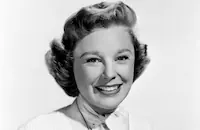
June Allyson

Jimmy Durante
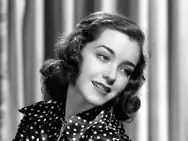
Marsha Hunt
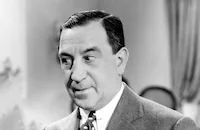
Hugh Herbert
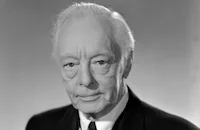
Harry Davenport

Marie Wilson
Larry Adler
Ben Lessy

Connie Gilchrist
Katharine Balfour

Helen Gilbert
Mary Parker

Madeleine Lebeau
Ethel Griffies
Eddie Jackson
Jack Roth
Lillian Yarbo
Robert E. O'connor
Frank Hagney
Ed Gargan
Eddie Dunn
Jeanne Bayless
Roberta Ridley
Tanis Chandler
Lorraine Page
Linda Deane
Sybil Merritt
Danna Mcgraw
Helen Pender
Lottie Harrison
William "bill" Phillips
Robert Homans
Lorraine Miller
Dick Crockett

Wally Cassell

Willie Best
Broderick O'farrell
Al Ferguson
Capt. Somers
Jody Gilbert

Lee Phelps
Charles Sullivan
Frank Darien
Sam Finn
Harry Burns
Ed Agresti
Sam Mcdaniel
Arthur Space
Garry Owen

Tim Murdock
Mary Gordon
Paul E. Burns

Nestor Paiva
Robert Dudley
Jane Green
Ruth Lee
Volta Boyer

Byron Foulger
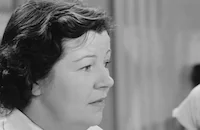
Margaret Bert
Kenneth Scott
Effie Laird
Stanley Andrews
Josephine Allen
Doris Stone
Ned Dobson Jr.
Lyle Clark
Sarah Edwards
Edith Leach

Geraldine Wall
Joel Friedkin
Earl Schenck
George Carleton
Ronnie Rondell
Crew
Edward Baravalle
Douglass Biggs
Hugh Boswell
William Brockway
Walter Bullock
Irving Caesar
Frédéric Chopin
Myles Connolly
Helen Conway
Mark Davis
Kay Dean
Claude Debussy
Peter P. Decker
Walter Donaldson
Ted Duncan
Jimmy Durante
Antonín Dvorák
Cedric Gibbons
A. Arnold Gillespie
Edvard Grieg
George Frideric Handel
Victor Herbert
Irene
José Iturbi
Calvin Jackson
Calvin Jackson
Henry Koster
Standish J. Lambert
A. Lindsley Lane
Franz Liszt
Michel Michelet
Warren Newcombe
Joseph Nussbaum
Joe Pasternak
Hans Peters
Douglas Shearer
Robert W. Shirley
Newell Sparks
Ralph Spina
William Steinkamp
Michael Steinore
Georgie Stoll
Robert Surtees
John A. Williams
Edwin B. Willis
Dolph Zimmer

Videos
Movie Clip



Trailer
Film Details
Technical Specs

Award Nominations
Best Writing, Screenplay
Articles
Music For Millions
A patriotic World War II musical drama from MGM, Music for Millions features O'Brien as the enterprising six-year-old sister of June Allyson, who plays string bass in Jose Iturbi's orchestra during a wartime crunch that means most of the musicians are female. The sentimental story revolves around the concerns of the Allyson character about the GI husband she hasn't heard from in months. Jimmy Durante, in an unusual bit of casting, plays Iturbi's manager - although The Great Schnozzola is given a chance to perform "Toscanini, Iturbi and Me" (a variation on his "Toscanini, Stokowski and Me") and "Umbriago," a number written especially for the film that would become one of Durante's most celebrated nightclub pieces.
Producer Joe Pasternak and director Henry Koster had recently moved to MGM from Universal, where they had created a series of musicals starring Deanna Durbin that had saved that studio from financial ruin. The team repeated the pattern of the Durbin movies with the highly successful Music for Millions, enlivening the plotline with frequent concert performances of works by Dvorak, Grieg, Victor Herbert, Debussy, Tchaikovsky, Liszt, Handel and Chopin. Koster thoroughly enjoyed his cast, later describing O'Brien as a "born actress," Durante as "probably the most wonderful man I have ever worked with" and Allyson as a "great, great talent - she really had the spark."
O'Brien and Allyson became so close during filming that Allyson would later recall that "little Maggie O'Brien's picture was the only one I kept on my dresser." The two actresses, who later played sisters again in Little Women (1949), both remembered being known at MGM as the "town criers" because of their ability to weep convincingly at the drop of a hat. O'Brien in particular had honed her crying skills to a fine point. In a Directors Guild of America Oral History interview, Koster recalled O'Brien asking, "Mr. Koster, do you want the tears to be just visible in my eyes or rolling down the cheeks?" When asked what she meant, the tot continued: "I can control that. I think of something very sad when I have them roll down my cheeks, or just a little sad when you just want my eyes to get wet."
Producer: Joe Pasternak
Director: Henry Koster
Screenplay: Myles Connolly
Cinematography: Robert Surtees
Art Direction: Cedric Gibbons, Hans Peters
Costume Design: Kay Dean, Irene
Original Music: Walter Bullock, Walter Donaldson, Harold Spina, Herbert Stothart (all uncredited)
Editing: Douglass Biggs
Principal Cast: Margaret O'Brien ("Mike"), Jose Iturbi (Himself), June Allyson (Barbara Ainsworth), Jimmy Durante (Andrews), Marsha Hunt (Rosalind), Hugh Herbert (Uncle Ferdinand), Harry Davenport (Doctor), Marie Wilson (Marie), Connie Gilchrist (Travelers Aid Woman).
BW-118m. Closed captioning.
by Roger Fristoe

Music For Millions
Quotes
Trivia
Notes
The working titles of this film were Dear Barbara and 100 Girls and a Man, an apparent takeoff on producer Joe Pasternak and director Henry Koster's 1937 hit Universal film One Hundred Men and a Girl. In addition to the above-listed numbers, a medley of classical music, featuring works by Ludwig von Beethoven, Johannes Brahms, Felix Mendelssohn, Franz Liszt, Wolfgang Amadeus Mozart and others, is heard in the film. Claude Debussy's "Clair de Lune" is performed first by José Iturbi on the piano and then by Larry Adler on the harmonica. Although Hollywood Reporter announced that a sextette from the opera Lucia, sung by Judy Garland, James Melton, Lauritz Melchior, Carlos Ramirez, Marion Bell and an unnamed singer, was to be performed in the film, it was not included in the completed film. Producer Joe Pasternak and director Henry Koster, who previously had worked together on Universal's popular Deanna Durbin pictures, began preparation for this film while still at that studio, according to a Hollywood Reporter news item.
When M-G-M took over the project, Susan Peters and Frank Morgan were announced as the stars. Donna Reed was then slated to star and was listed in early Hollywood Reporter production charts, but was replaced by June Allyson because of a scheduling conflict. According to a February 1944 Hollywood Reporter news item, Jimmy Durante's role was enlarged in response to a favorable preview audience reaction to his performance in Two Girls and a Sailor . Although Hollywood Reporter announced that Clem Bevans had been cast as "the doctor" in the picture, Harry Davenport actually played the part. Cyd Charisse was listed as a cast member in Hollywood Reporter, but she was not seen in the viewed print. Hollywood Reporter also announced Jimmy Clark as a cast member, but his participation in the final film has not been confirmed. Myles Connolly's original screenplay for the film was nominated for an Academy Award. A Lux Radio Theatre presentation of this film, starring O'Brien, Durante, Iturbi and Frances Gifford as "Barbara," was broadcast on May 27, 1946.















